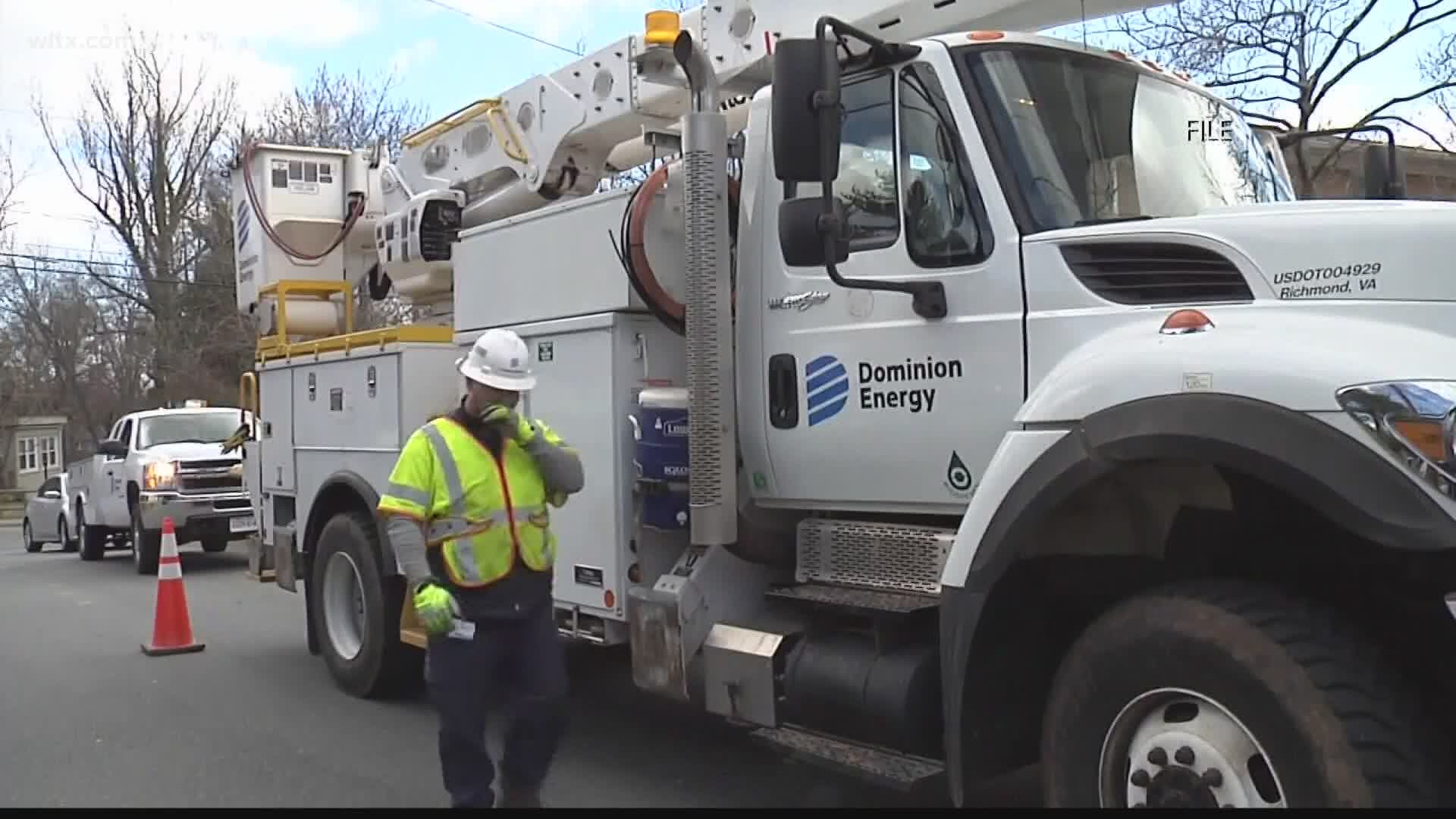COLUMBIA, S.C. — A settlement has been reached between South Carolina state agencies and Dominion Energy that should mean a smaller electric rate increase for hundreds of thousands of customers and no more rate hikes for at least two years,
The South Carolina Office of Regulatory Staff (ORS) announced on Friday morning that several state and private organizations had reached an agreement with Dominion, one of the largest electric providers in the state. The deal must still be signed off on by the South Carolina Public Service Commission, which regulates utilities that operate in the state.
“On behalf of ORS, I appreciate everyone’s diligence and persistence in reaching this settlement agreement, which was only made possible thanks to the additional time the Commission afforded us,” said Nanette Edwards, ORS executive director.
ORS reports that, if adopted by the Public Service Commission, would mean a net increase of 1.46% in rates beginning on Sept. 1. That's down from the original request of 7.7%. The agency added that this would lead to an increase of $1.81 a month for what it described as the "typical residential customer."
The South Carolina Small Business Chamber of Commerce added that the agreement also means a much smaller increase for business - from the originally proposed 7.2% increase to 1.08%.
The president and CEO of the organization, Frank Knapp Jr., also signed the agreement and also protested the initial increase as a customer of Dominion.
In a statement, he added that he had similarly intervened in past rate hearings for South Carolina Electric & Gas.
"Small businesses should be assured that they are getting the best outcome possible," he said. "The biggest reduction in a utility rate hike request that I have seen in the last 20 years."
For Dominion Energy, the settlement will still mean an annual revenue increase of $35.6 million based on a 9.5% return on equity. However, this is a considerable decrease from the $178 million and 10.25% return on equity originally requested. Dominion agreed to the change and also vowed not to file another general rate case for two years, "absent unforeseen circumstances."
Another significant change on Dominion's part will be committing up to $30 million in shareholder funds set to support "vulnerable and economically distressed customers at no cost to ratepayers."
Up to half of that will go to forgiving past-due balances of more than 60 days as of May 31. The other half would be dedicated to "energy efficiency upgrades and critical health and safety repairs to homes" that would allow homes to participate in money-saving programs offered by Dominion.
Other stipulations Dominion agreed to would require they double their commitment to EnergyShare, the company's assistance program. This would mean $1.5 million for this year and 2022 and includes $500,000 for small businesses.
The utility also agreed to keep its fixed monthly charge below $10. The current fee is $9 and the settlement fee is $9.50.
In 2019, Dominion merged with SCANA, the parent company of the former SCE&G, and took over that company's duties in providing electricity to hundreds of thousands of customers statewide.
At the time, the company agreed to a rate reduction for customers for two years, part of a complex set of pacts the company made in the wake of a failed plan by SCANA and Santee Cooper to build two new nuclear reactors in Fairfield County.
Fast-forward to 2020 and Gov. Henry McMaster said he wanted Dominion to stop its request for a rate increase.
“I simply cannot support Dominion’s application to increase its rates as South Carolinians continue to confront myriad challenges related to COVID-19,” he said, calling a "sizable rate increase" an "unexpected and untenable burden."
As such, Dominion agreed to delay the rate increase for at least six months.

